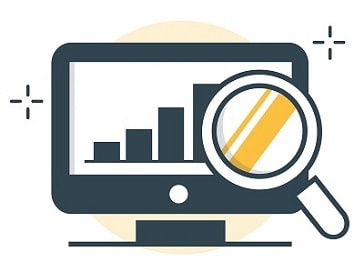Self-Employment - The Complete New Zealand Guide
Manage the financial success of your business and leave nothing to chance with our guide to making self-employment work for you
Updated 16 September 2023
In this guide, we outline how to set up your finances properly when you are self-employed to help you manage your growth, money and tax. Self-employment has a lot of benefits, and no day will ever be the same. However, to ensure long-term survival, we've detailed the most important must-know tips below.
Our guide covers:
Know this first:
Our guide covers:
- Whether you're a sole trader or form a company, start your business right
- Seven Must-Know Facts about Self-Employment
- Sole Employment Options - Sole Trader vs Business vs Partnership
- New Zealand Self-Employment - Frequently Asked Questions
- Self-Employment - Pros, Cons, and the Bottom Line
Know this first:
- Whether your self-employment takes the form as a sole trader or company, starting a business is an investment, and will cost money to establish and operate well before it’s able to turn a profit.
- If you need money to start, consider how your business will be funded, whether you will require investment, and where you will obtain funds for your business. You can find more resources on funding your business at the following Careers NZ's sort out your business finances section, along with tips and considerations on business incubators.
Important - Is Self-Employment for Me?
Self-employment may be a great idea for anyone with skills, knowledge, or abilities that can be marketed and sold for profit. This can involve being a tradesperson and offering contracting services, or setting up a small business, being an entrepreneur, and selling products and services online.
However, being self-employed isn't all about freedom and being your own boss. There are upsides and downsides and, ultimately, a lot of responsibility. There are a few considerations you should take into account before becoming self-employed:
However, being self-employed isn't all about freedom and being your own boss. There are upsides and downsides and, ultimately, a lot of responsibility. There are a few considerations you should take into account before becoming self-employed:
- You will be on your own - You don’t have to answer to anyone — but you’re also left to your own devices. You’ll take full responsibility for any investments you make, financial losses or damages incurred, and the overall success of your ventures.
- There are no company 'perks' unless you pay for them - If you want employment benefits, you’ll have to create (and pay for) your own annual leave, sick leave, company car, KiwiSaver contributions and other tax-deductible benefits.
- Things may not always go your way — especially at first. Self-employment is a calculated risk, not a hassle-free ticket to success. You have to develop a working business model that will give you a positive income from one week, month, and year to the next. Sometimes, self-employment begins as a part-time job that eventually becomes full-time. When starting your own business, especially one which requires an investment, you’ll need a viable idea that offers
- The business you undertake must have a proven profit potential - this is arguably the most important aspect of any business. While it's easier with a trade (i.e. working as a self-employed plumber, child-minder or electrician, etc), new product and service ideas are much higher risk. The Ministry of Business, Innovation and Employment (MBIE) has some helpful framework for testing a business idea.
- Confidence is a must - if anyone is going to believe in what you’re doing, it has to be you. Even the most self-assured and confident people can fail at self-employment. This useful MBIE Questions to Ask Yourself guide is essential before becoming self-employed.
Whether you're a sole trader or form a company, start your business right
Self-employment is easier if you start your business right. To grow your business and avoid problems, the best approach is to plan. Doing so protects you from problems which can threaten the business and your self-employment.
Having the correct set-up in all aspects (structurally, legally, financially) means you can get ahead with your business. Our must-know tips below explain how best to do that:
Having the correct set-up in all aspects (structurally, legally, financially) means you can get ahead with your business. Our must-know tips below explain how best to do that:
1. It’s essential to manage your cash flow throughout the year
Many New Zealanders who choose self-employment make a good living. However, there’s no certainty that your business’s income will be regular. Some customers will pay late, and others won’t pay at all, while sales might quiet at certain times of the year. All this means that your income will be up and down.
To help manage the ups and downs of cash flow, many self-employed keep some money aside in their business to cover essentials should money dry up for a few weeks. It’s best to keep paying yourself regularly and keep up to date with bills.
Being self-employed means you won’t be able to draw on sick leave or annual leave unless you’ve already put money aside for that. Like with anything, saving small amounts every week can be a big help when you need cash urgently.
To help manage the ups and downs of cash flow, many self-employed keep some money aside in their business to cover essentials should money dry up for a few weeks. It’s best to keep paying yourself regularly and keep up to date with bills.
Being self-employed means you won’t be able to draw on sick leave or annual leave unless you’ve already put money aside for that. Like with anything, saving small amounts every week can be a big help when you need cash urgently.
2. Separate your business money and personal money
To avoid confusion and, ultimately, a big mess, it’s essential to keep your self-employment income separate from your everyday bank account. Bank accounts are cheap (or free) to set up and having a dedicated business account will make a clear division between the business money and yours. The best process is to pay yourself a regular wage, even if it’s only a few hundred dollars every week while you start. This lets you assess the financial health of the business and let you run an accurate profit and loss statement.
3. Provisioning for tax is essential
Tax is a year-round task, but it doesn’t need to be complicated, and the IRD has come a long way in making it easier to understand and anticipate. If you’re in doubt, accountants such as HNRY and Small Business Accounting offer fixed-price services to help.
Income tax and company tax
Goods and services tax (GST)
Tax-deductible expenses
Many expenses related to being self-employed are tax-deductible, which means you can deduct them from your income and ultimately lower your taxable income. The IRD has guidance on what these are, otherwise speak to your accountant and they will advise you further.
Income tax and company tax
- If you're self-employed and working as a sole trader, you need to pay income tax under PAYE. This means you pay tax when you receive an income, so you don’t need to put extra money aside for a tax bill later on.
- Use our PAYE calculator to see how much tax will be taken. However, if you’re a company, you will need to pay company tax on profits – be sure to keep money aside to pay this.
Goods and services tax (GST)
- Businesses that earn over $60,000 per year must register for GST. You’ll then charge GST on your revenue (i.e. an extra 15%) and, when you receive it, set it aside to pay the IRD. If your turnover is under $500,000, you’ll submit a GST return every six months (and if it's more, you'll file every two months). Use our GST calculator to see how much to charge customers, and how much you’ll get back from your suppliers.
Tax-deductible expenses
Many expenses related to being self-employed are tax-deductible, which means you can deduct them from your income and ultimately lower your taxable income. The IRD has guidance on what these are, otherwise speak to your accountant and they will advise you further.
4. Consider protecting your income and your business with insurance
We never suggest buying unnecessary insurance, but without being able to fall back on sick leave, if you are unable to work, your business is at risk. Income protection insurance is worth considering as it can prevent financial difficulties that can otherwise easily arise if you’re off work for an extended period.
Other insurance that might be relevant to your self employment activities include public liability insurance and business insurance.
Other insurance that might be relevant to your self employment activities include public liability insurance and business insurance.
Seven Must-Know Facts about Self-Employment
There's a lot to know about self-employment; our list below outlines the most important things to consider before you make any decision.
Money is not always a guaranteeUnlike a day job with a regular payday, self-employment requires independence in all aspects — particularly in your ability to make money. As a contractor or a business owner, your job will involve building a reliable client base and growing your reputation until you no longer have to worry about the next payday.
Unfortunately, work may not always be available. While your business may eventually take on a life of its own, the journey to success often has many ups and downs. Christopher Walsh, Founder of MoneyHub.co.nz shares his experience: "When starting my first business, my co-founder and I made a decision early on to limit overheads and marketing costs. This way we could maximise the amount of cashflow and re-invest it back into the business. We also didn't want to be worrying about paying suppliers so always kept a provision of cash to cover bills when they were due. We've continued to stick to a lean approach, although during COVID-19 I found $25,000 in annual savings just by cancelling some unnecessary subscriptions, services and tools. Keeping control of your costs is the only way you'll be able to pay yourself". |
There is almost no safety net if something goes wrongSelf-employment may give you the freedom you’ve always dreamed of, but if things go wrong, there may be very little for you to fall back on. It’s essential to have a financial plan in place to keep you out of a distressed financial situation should something go wrong. Some business acumen will be required to stay on the right track, which involves:
|
Self-employment can place you in highly-competitive industriesIf everyone could handle being self-employed and it was always a better deal than working for someone else, it's arguable that big companies would struggle to recruit staff. However, there are many reasons why people prefer a day job over self-employment — and one of them is the need to be highly competitive.
As a sole contractor, entrepreneur, or independent business owner, your job will be to offer a product or service with enough incentive to beat the competition. It’s a good idea to work on your marketing skills and figure out exactly how, where, and when you’ll be able to get customers when self-employed. Opportunities will be yours for the taking, but you will have to seek them out. |
Your reputation is a determining factor in your successAs a self-employed person, you may find yourself spending a big part of your time simply building your reputation — which often means working harder than you’ve worked before. Especially when starting out, it’s important to consider that your work, products, and services should be to a standard that gives your business momentum.
Christopher Walsh, Founder of MoneyHub.co.nz shares his experience: "I decided to quit a corporate job and started a business with a friend. Alongside building a process to deliver a great service, we made efforts to grow our reputation. We achieved this by focusing on Google reviews, Trade Me services reviews, Facebook reviews and we made sure we constantly profiled our best work. Having a great service or product is essential, but making sure that people who need it know about you is arguably as important". |
Responsibilities are high — and your work-life balance may be up in the airWhen you go it alone, you’ll have to seize opportunities whenever they come — which may be beyond your control. And as you juggle the financials of your business, you may find yourself sacrificing time off, holidays, and sick days for the security of your business.
You may also have to work around client schedules and be willing to start right away, especially at first. As you grow more successful, you will gain more control over your terms and your schedule, and as you do, your lifestyle may begin to resemble something of a dream job. |
You can gain more experience and skills when self-employedSelf-employment is an experience all on its own, not to mention the variety of work that comes with it. Being an entrepreneur, sole contractor, or having your own business will challenge you to develop new skills and abilities that will only make you more marketable. You may even find yourself transitioning products, services, and industries as you find more lucrative and stimulating opportunities available.
In a nutshell, there are few moments of boredom. Self-employment means constantly re-inventing, growing and improving to the point where it feels completely natural. |
Self-Employment in New Zealand doesn't require anything other than citizenship, permanent residency or a valid visaTo qualify for self-employment in New Zealand, you’ll have to meet the following requirements:
|
Sole Employment Options - Sole Trader vs Business vs Partnership
If you have decided that self-employment is right for you, you will have the option of:
Find more information on self-employment options here. MBIE also has a useful tool that will help you decide what business structure is right for you.
- Becoming a sole trader
- Starting a business / company
- Starting a partnership with another company (this is less common, and we don't expand on it further below)
Find more information on self-employment options here. MBIE also has a useful tool that will help you decide what business structure is right for you.
Option 1 - How to Become a Sole Trader
The sole trader qualification is ideal for contractors and entrepreneurs who want to be self-employed but do not want to have a company — at least not yet. It is a great starting point for self-employment that can flourish all on its own or one day lead to something bigger. As a sole trader in New Zealand, you can be a self-employed tradesperson, independent contractor, freelance service provider, and a vendor of products without the need to have an established company.
To be a sole trader, you will have to:
To be a sole trader, you will have to:
- Apply for a personal IRD number (only if you don't have one already), be qualified or registered for your job or trade (if required), and obtain government licenses to operate your business. A great way to strengthen your reach and customer trust is with a New Zealand Business Number (NZBN), which is easy to apply for. You will be registered with the government and the NZBN can be used when obtaining licenses, dealing with customers, and communicating in a business-to-business capacity. You can start by getting an NZBN here.
- Register as a sole trader with Inland Revenue so you can pay taxes on your business, which will include a Goods and Services Tax (GST) if you earn more than $60,000 a year. You’ll find more information and a starting point on the process here.
- Follow the complete guide and find official resources for getting started as a sole trader here.
- Pay hidden costs - MBIE has a detailed guide which covers everything you need to know here.
Option 2 - Register a Company
Starting a company means you will have:
- your own business name
- a specific ownership structure (i.e. shareholders and directors)
- the option to trademark your business name
- the option to have investors.
New Zealand Self-Employment - Frequently Asked Questions
Self-employment isn't complicated, but there are some must-know questions to ask before proceeding. Our list of common questions below helps anticipate what's important.
Will I get tax benefits by being self-employed?
As a sole trader, you may qualify for government assistance in the form of tax benefits and other helpful business programmes. For more information, visit this MBIE guidance. In addition to that:
- Businesses (companies, partnerships and sole traders) can claim expenses against their income to help minimise taxes. Find more information on the MBIE site.
- For overall information on business income taxes, the IRD's dedicated guide has more details.
Can I be self-employed in New Zealand if I am an immigrant?
Yes, provided that you are a permanent resident of New Zealand or have valid visa qualifications for self-employment. You can find more information on Immigration New Zealand's guide.
What am I allowed to do for a living as a sole trader?
There is no limit, and best of all, you can continue to craft your services based on what you like and what's in demand. Being a sole trader gives you the opportunity to be self-employed in a huge variety of capacities and is a great route for:
- online entrepreneurs
- tradespeople such as electricians, builders, plumbers, landscapers
- consultants and other contractors
- service providers such as stylists, makeup artists, and interior designers
- hobbyists turning a profit by selling paintings, woodwork, arts and crafts
- vendors of products.
What’s the difference between a sole trader and a limited liability company?
As a sole trader, you are the brand and the business, but you can still hire employees and pay wages once you’ve been filed as an employer. Your income taxes will be limited to yourself, and they may include a Goods and Services Tax (GST) in the case of earnings higher than $60,000 a year.
When you own a limited liability company, you will pay income taxes on your income and the profits of your business. The business you own is a separate legal entity, for which you will need separate bank accounts, a lawyer, and which will need to meet various legal obligations. You’ll have asset protections and other types of insurance that give your business structural support for purposes of growth and success.
Learn more about the difference between a sole trader and a business here.
When you own a limited liability company, you will pay income taxes on your income and the profits of your business. The business you own is a separate legal entity, for which you will need separate bank accounts, a lawyer, and which will need to meet various legal obligations. You’ll have asset protections and other types of insurance that give your business structural support for purposes of growth and success.
Learn more about the difference between a sole trader and a business here.
How much money can I earn if I’m self-employed?
There is no limit. A major benefit of being self-employed is that you have unlimited earning potential and can sell services and products to your heart’s content. Of course, you’ll need to have a working business idea, a market for your business, and possibly investments or funding to get off the ground. Before you become self-employed, ask yourself some important questions to determine if being self-employed is right for you by reading this MBIE guide.
Self-Employment - Pros, Cons, and the Bottom Line
Self-employment is an obvious choice for some people, but many might not be willing to affect the work/life balance that they are used to with structured employment. Those who decide to be self-employed are ultimately responsible for their business, and the support of every business are their customers, clients, suppliers and employees.
Our refined list of pros and cons quickly summarise what you need to know:
Our refined list of pros and cons quickly summarise what you need to know:
|
Pros
|
Cons
|
The Bottom Line
- To succeed in self-employment, you have to know the risks and challenges involved — and be willing to take them head-on.
- With big challenges come big rewards. However, building up a business is a long-term project and overnight success is rare (and often unsustainable).
- With a successful trade or business, you can do what you love, work on your own terms and time, and make as much profit as your industry or abilities allow.
- Self-employment certainly takes some resilience and strength, but much of it is forged through experience.
- If you choose to be self-employed, don’t be discouraged by early failures or a lack of success. If there is a market for your business and you truly believe in what you’re doing and stay committed to your goals and the quality you provide, sooner or later you will make a breakthrough and enjoy the success you deserve.













